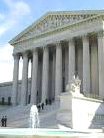
The Michigan-based law firm of Clark Hill PLC has opened an office in downtown Chicago, firm CEO John Hern announced today. Attorneys Tina M. Bird, W. Kent Carter, Richard H. Chapman, James M. Drake, Edward L. Filer, Gary E. Green, and Fuad R. Sulayman have joined as members in the Chicago office. Clark Hill Chicago offers a full line of legal services with a concentration in the construction, real estate, manufacturing and financial services industries, and is located at 150 North Michigan Avenue.
"We are very excited to announce the addition of these talented individuals to our team, and equally pleased to be able to offer our clients the enhanced benefits of service across the Midwest," John Hern said. In addition to the seven attorneys presently practicing in the Chicago office, the firm plans to significantly increase the number of attorneys during the coming year. Edward L. Filer will serve as the managing member of the firm's Chicago office. Filer has more than 15 years of experience as a business counselor and trial lawyer for businesses of all types, including the construction and real estate industries. Filer maintains a national practice and in 2006 his peers recognized him as an Illinois Leading Lawyer® in Construction Law and Privately Held Companies. "We are looking forward to our role within such a highly regarded firm and carrying on in the Clark Hill tradition of dedication to client service and providing superior legal expertise," Filer said. "Each of the attorneys in our office offers substantial client experience in his or her respective area, and we look forward to providing enhanced resources to our current and future clients in the Chicago market." Tina M. Bird joins Clark Hill with more than 10 years of experience in construction and commercial litigation matters, in which she represents contractors, owners, developers, subcontractors and design/builders in contract drafting and negotiation, payment disputes, delay damage claims, defective work claims and other construction disputes. She also represents clients in insurance related disputes. W. Kent Carter focuses his practice on commercial litigation, with a concentration on the Uniform Commercial Code, including secured transactions, commercial sales, equipment leasing and negotiable instruments. He has more than 9 years of experience representing clients in complex contract disputes and business torts in state, federal, bankruptcy and appellate courts. Carter has defended numerous class actions in both state and federal courts, including actions for violation of the consumer fraud statutes, the Fair Debt Collection Practices Act, the Credit Repair Organization Act, and the Fair Credit Reporting Act. Richard H. Chapman has more than 23 years as a business counselor and trial lawyer representing businesses of all types, including financial institutions, professional service providers, manufacturers and distributors in litigation in state and federal trial and appeals courts and bankruptcy courts, as well as in arbitration, throughout the United States. Clients have consistently recognized both his strategic guidance and depth of business and legal experience resulting in favorable outcomes. His peers have recognized him as a 2006 Illinois Leading Lawyer® and an Illinois Super Lawyer.® James M. Drake has more than 23 years of experience as a corporate counselor to both privately and publicly held companies. Drake focuses his practice on business and corporate transactions and commercial finance and secured transactions. He represents start-up businesses and established entities in all types of corporate and business representation, including: mergers, acquisitions and divestitures; corporate, limited liability and partnership organization; structuring and dissolution; and drafting and negotiating all types of corporate agreements and documentation. Drake has been recognized by his peers in as an Illinois Leading Lawyer® in the area of Closely and Privately Held Business Law. Gary E. Green has more than 18 years of experience representing financial institutions, equipment lessors, in foreclosures, receiverships, lender liability, bankruptcy and restructuring in both state and federal courts throughout the United States. His experience also includes loan documentation, portfolio sales and purchases, and U.S. Small Business Administration loan programs. Fuad R. Sulayman concentrates his practice on healthcare law, complex commercial litigation, and medical malpractice. Sulayman has represented physicians and has significant trial experience in both state and federal courts throughout the United States. Clark Hill PLC is headquartered in Detroit, and has offices located throughout Michigan. The firm is a full service law firm, and is ranked among the Top 10 Largest Law Firms in the state of Michigan.(a) (a)According to Crain's Detroit Business (03.06.06) Firm Profile Since 1890, Clark Hill PLC has been serving the business, government, non-profit and personal needs of clients. Clark Hill has offices in Detroit, Birmingham, Grand Rapids, and Lansing, Michigan, and Chicago, Illinois. Clark Hill is a full service law firm with more than 170 attorneys. For more information, visit www.clarkhill.com.
|








